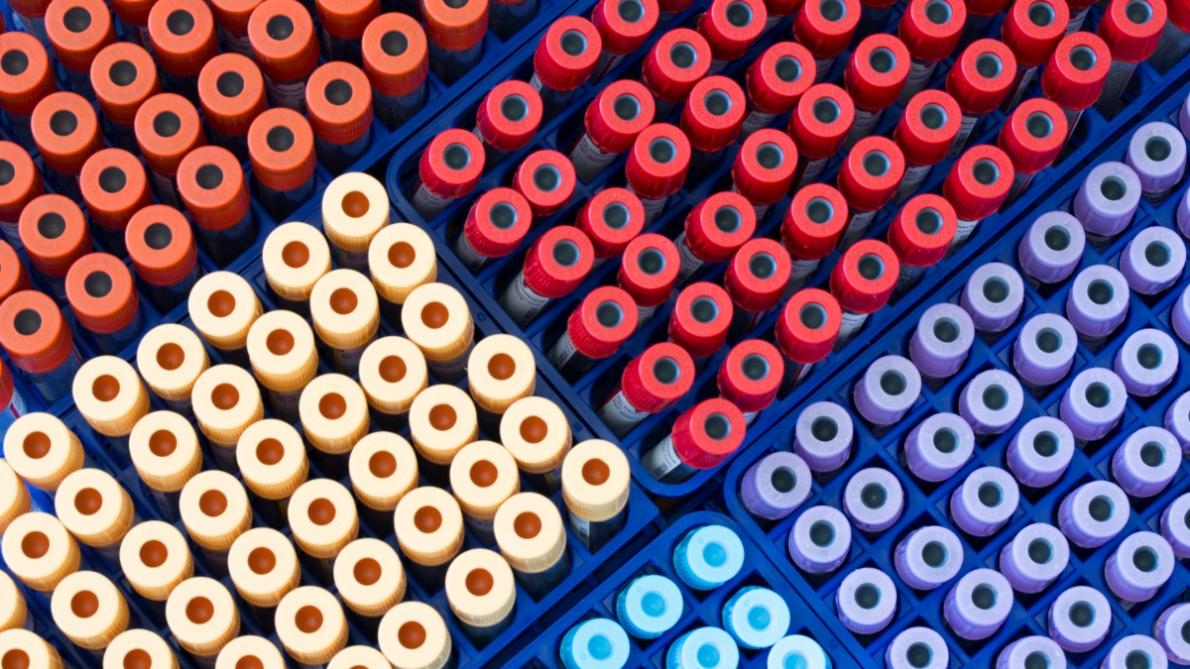Do Brain Tumors Show Up In Blood Work?

When faced with neurological symptoms like headaches or cognitive changes, it's natural to wonder: Can routine blood tests detect a brain tumor? The short answer is: no. Standard blood work such as a complete blood count (CBC) or metabolic panels cannot detect brain tumors directly, because tumors within the brain typically do not release detectable markers into the bloodstream. These tests do, however, play a vital role in assessing overall health, ruling out other conditions, and evaluating treatment readiness.
Understanding the role of blood tests in brain tumor detection can help gain insight into the nature of brain tumors and offer new, innovative solutions to treatments, diagnosis, and remedies.
Why Routine Blood Tests Fall Short
The Blood-Brain Barrier (BBB) blocks most substances, including tumor-derived proteins or DNA fragments, from entering the bloodstream. This protective mechanism helps explain why brain tumors remain hidden to standard blood tests.
Even specialized tumor markers that work for other cancers, such as CEA for colorectal cancer, lack the specificity and reliability for detecting brain tumors. Routine blood panels are primarily diagnostic for systemic health, not localized brain pathologies.
What Is the Role of Blood Work in Brain Tumor Diagnosis?
While they can’t directly diagnose a brain tumor, blood tests are far from useless. Blood tests are instrumental in helping to:
- Rule out other causes of symptoms, like infections, metabolic imbalances, or systemic illness.
- Assess organ function to ensure safe imaging or treatments like chemotherapy.
- Monitor treatment impacts, such as bone marrow or liver function, during therapy.
These complementary data points help guide effective and safe diagnostic decision-making. Being able to rule out certain conditions and gain more insight into the condition and well-being of a patient enables the diagnosis and treatment processes to be more strategic and accurate.
How are Brain Tumors Diagnosed?
Diagnosing a brain tumor relies on more definitive methods like imaging and biopsy:
- Neurological Exam - Assesses reflexes, strength, cognitive function, and coordination.
- MRI or CT Scans - Visualizes the brain directly. Advanced methods like MRS, fMRI, or PET can offer even deeper insights into tumor behavior.
- Tissue Biopsy - Via biopsy or surgery, this method remains the most accurate way to identify tumor type, grade, and genetics.
Together, these tools form the diagnostic backbone of brain tumor care. Neuro exams, MRI or CT imaging, and needle or surgical tissue biopsy are commonly regarded as the “gold standards” for diagnosing brain tumors, and should be relied upon far more than routine or standard blood tests in identifying existing tumors.
The Future of Blood-Based Detection: Liquid Biopsies & Biomarkers
Despite current limitations, cutting-edge research is pushing new methodologies and possibilities into blood-based diagnostics:
- Circulating Tumor DNA (ctDNA): Some advanced glioma blood tests can detect tumor-derived DNA fragments in the bloodstream, even before MRI changes appear, with promising accuracy.
- Liquid Biopsies: Leveraging ultra-sensitive sequencing and PCR-based technologies, these methods aim to detect tumor-specific mutations and genetic markers with minimal invasiveness.
- DNA Methylation Signatures: Researchers are studying whether the methylation “fingerprint” of a tumor's DNA, found in blood, can identify tumor types non-invasively. Current accuracy is around 80%, with goals to reach clinical-grade standards (~90%).
- Other Biomarkers: Although not tumor-specific, markers like S100B may indicate broader central nervous system injury, offering support in evaluating neurological events
While still investigational, liquid biopsies and methylation profiling show promise for future, less invasive tumor detection. With more research and investigation, a new wave of potential blood-based tumor detection could play a significant world in the brain tumor diagnosis landscape, and present innovative new ways to detect, and therefore treat, conditions like brain tumors.
Innovation in Brain Tumor Detection
If you're navigating symptoms or concerned about brain health, please keep in mind:
- Routine blood testing is important, but not diagnostic for tumors.
- Imaging and biopsy remain foundational in diagnosis.
- Innovative research at the Preston Robert Tisch Brain Tumor Center holds promise for the future of blood-based detection.
Duke’s research team is exploring groundbreaking methods like liquid biopsies to identify fragments of tumor DNA or proteins in the bloodstream.
The center’s mission extends beyond diagnosis to include innovative treatment approaches, such as molecular genetics studies and clinical trials, like the PuMP Trial for recurrent glioblastoma. Duke’s FDA-approved therapies have already extended progression-free survival in patients. This ongoing research reflects Duke’s commitment to advancing brain tumor care, from early detection to pioneering treatment options.
Duke is a leader in brain tumor research, focusing on personalized care to improve diagnosis and treatment.
Interested in discussing your diagnosis and personalized treatment options? Visit our website to request an appointment. We also provide access to innovative clinical trials and the latest education & training to ensure you receive the most advanced care possible for brain tumors.
Interested in joining the team of world-leading Neuro-Oncology doctors and practitioners? Visit our education & training page to learn more. You can also support the clinic by donating funds directly to patient care, research, education, and treatment for brain tumors.
Want to learn more about brain tumor care? Explore related articles on our blog: